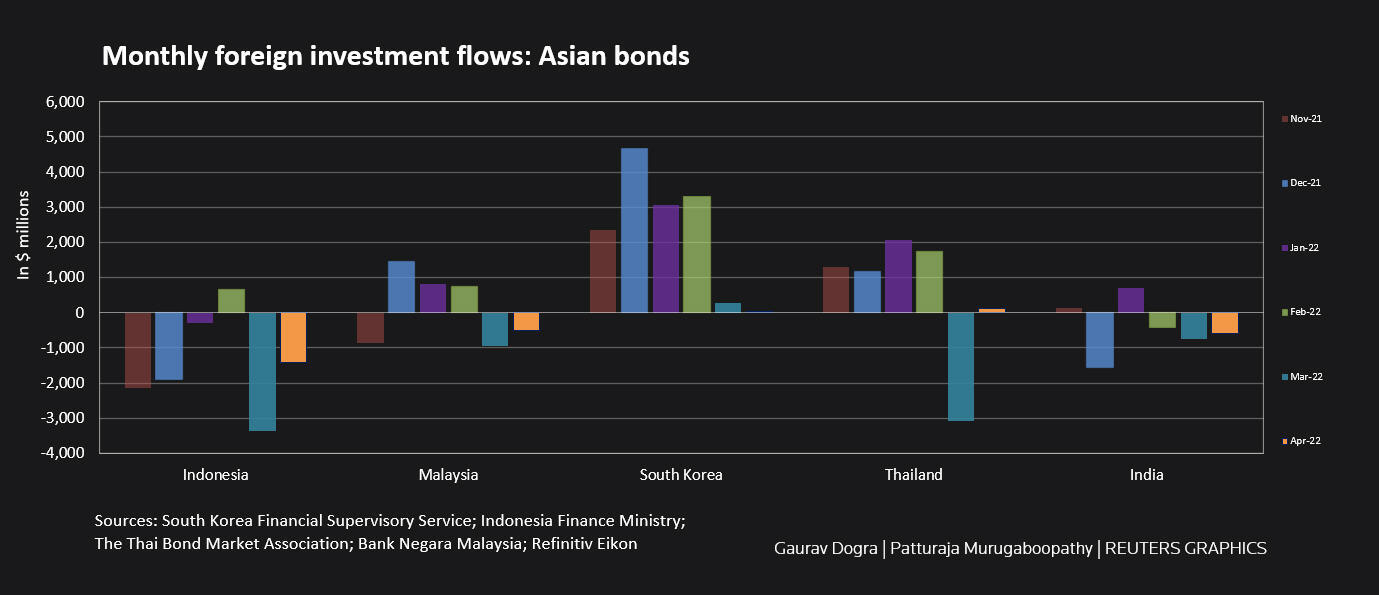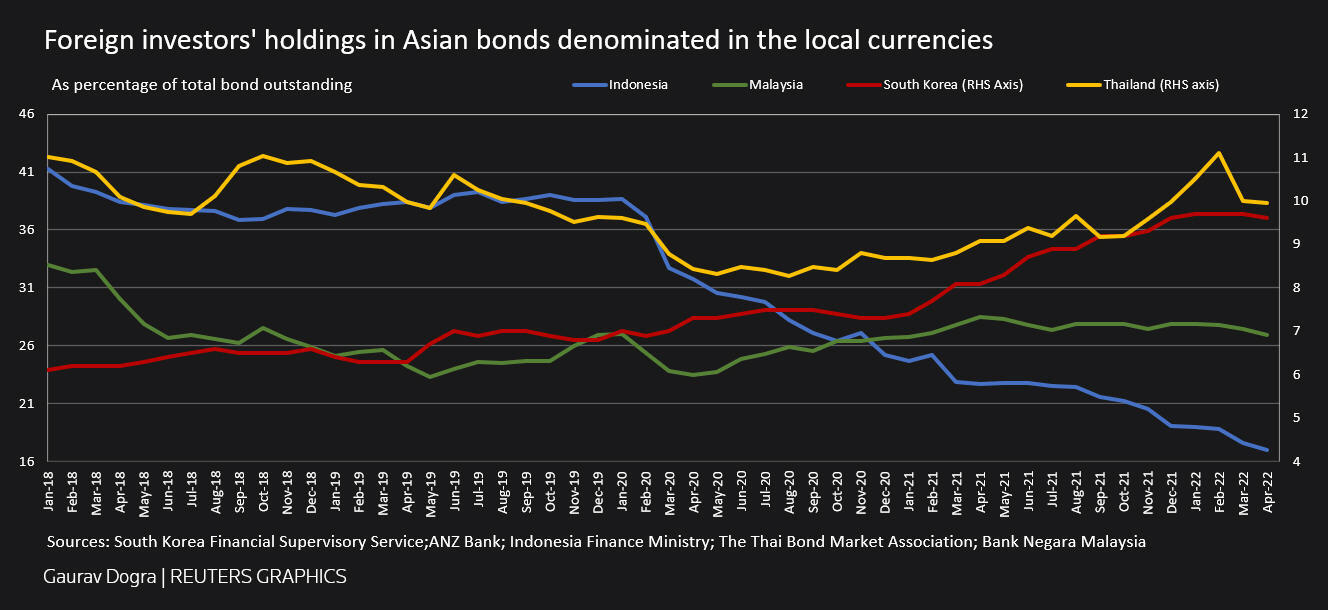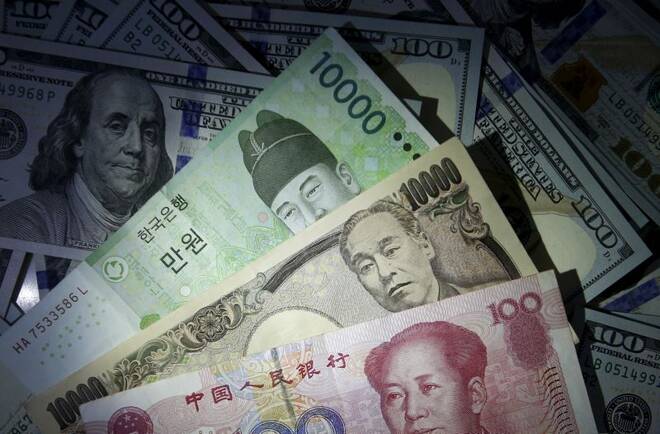Advertisement
Advertisement
Foreign selling in Asian bonds extends as U.S. yields surge
By:
By Gaurav Dogra (Reuters) - Emerging Asia ex-China bonds witnessed foreign outflows for a second straight month in April, due to higher U.S. yields and concerns over strict coronavirus lockdowns in China.
By Gaurav Dogra
(Reuters) – Emerging Asia ex-China bonds witnessed foreign outflows for a second straight month in April, due to higher U.S. yields and concerns over strict coronavirus lockdowns in China.
Overseas invesstors disposed a combined net total of $2.35 billion in South Korea, Thai, Indian, Indonesian and Malaysian bonds last month, data from regulatory authorities and bond market associations showed. It was the second consecutive monthly selling by foreigners in Asian bonds, according to the data.

Yields of 10-year U.S. government bonds have risen sharply in the past month, on expectations that the Federal Reserve would act aggressively to tame soaring inflation levels.
Fed hiked its benchmark overnight interest rate by 50 basis points this month and announced it would begin to trim its balance sheet next month to counter unabated inflation.
“The Ukraine conflict and an increasingly hawkish U.S. Federal Reserve were the main drivers of the outflows, given sharply weaker global risk sentiment and higher USD cost of funds,” said Jennifer Kusuma, senior rates strategist at ANZ.
“We expect outflows from the emerging Asia region to continue, although most economies possess robust fundamentals and FX reserves to withstand increased volatility.”
Foreigners sold Indonesian bonds worth $1.41 billion, while Indian and Malaysian bonds faced outflows of $579 million and $503 million, respectively.
Indonesia and India faced a big surge in consumer prices in April as food and energy prices jumped, raising expectations that respective central banks would have to raise interest rates more aggressively to curb prices.
Meanwhile, monthly cross-border purchases in South Korean bonds dropped to a sixteen-month low of $29 million last month.

Overseas investors bought $112 million worth of Thai bond last month, after net sales of $3.08 billion in the previous month.
“We are more concerned on countries with low yields like Korea and Thailand,” said Yu FU, investment specialist for emerging market debt at BNP Paribas Asset Management.
“Support from local investors also weakened as domestic inflationary pressures rose, thereby opening upside risks around domestic monetary policy rates,” said Jennifer Kusuma, a senior rates strategist at ANZ.
(Reporting by Gaurav Dogra and Patturaja Murugaboopathy in Bengaluru; Editing by Rashmi Aich)
About the Author
Reuterscontributor
Reuters, the news and media division of Thomson Reuters, is the world’s largest international multimedia news provider reaching more than one billion people every day. Reuters provides trusted business, financial, national, and international news to professionals via Thomson Reuters desktops, the world's media organizations, and directly to consumers at Reuters.com and via Reuters TV. Learn more about Thomson Reuters products:
Did you find this article useful?
Latest news and analysis
Advertisement
